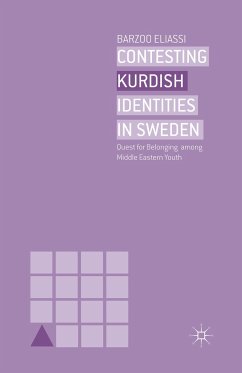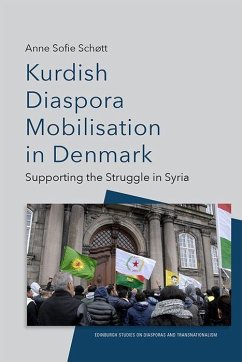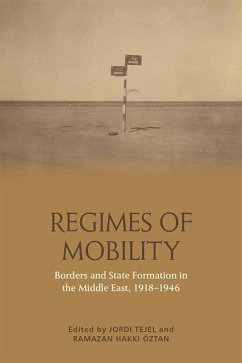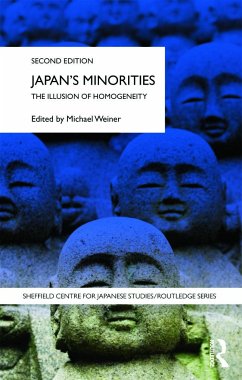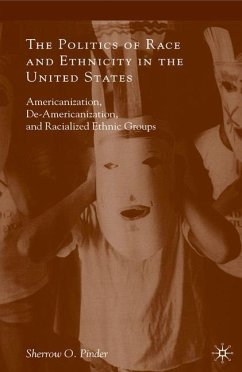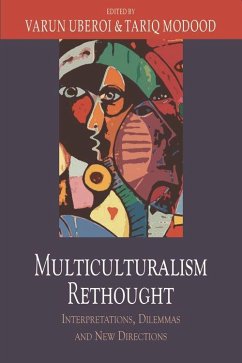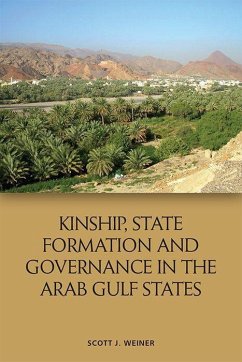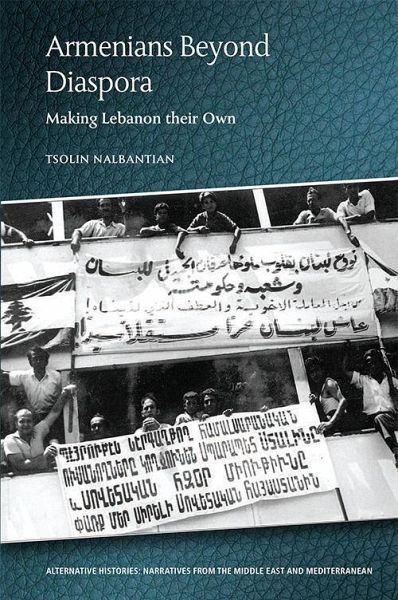
Armenians Beyond Diaspora
Making Lebanon Their Own
Versandkostenfrei!
Versandfertig in über 4 Wochen
142,99 €
inkl. MwSt.
Weitere Ausgaben:

PAYBACK Punkte
71 °P sammeln!
A socio-political and cultural history of the Armenians in Cold War Lebanon This book argues that Armenians around the world - in the face of the Genocide, and despite the absence of an independent nation-state after World War I - developed dynamic socio-political, cultural, ideological and ecclesiastical centres. And it focuses on one such centre, Beirut, in the postcolonial 1940s and 1950s Tsolin Nalbandian explores Armenians' discursive re-positioning within the newly independent Lebanese nation-state; the political-cultural impact (in Lebanon as well as Syria) of the 1946-8 repatriation in...
A socio-political and cultural history of the Armenians in Cold War Lebanon This book argues that Armenians around the world - in the face of the Genocide, and despite the absence of an independent nation-state after World War I - developed dynamic socio-political, cultural, ideological and ecclesiastical centres. And it focuses on one such centre, Beirut, in the postcolonial 1940s and 1950s Tsolin Nalbandian explores Armenians' discursive re-positioning within the newly independent Lebanese nation-state; the political-cultural impact (in Lebanon as well as Syria) of the 1946-8 repatriation initiative to Soviet Armenia; the 1956 Catholicos election; and the 1957 Lebanese elections and 1958 mini-civil war. What emerges is a post-Genocide Armenian history of - principally - power, renewal and presence, rather than one of loss and absence. Key Features ¿ Explores Lebanese Armenians' changing views of their place in the making of the Lebanese state and its wider Arab environment, and in relation to the Armenian Socialist Soviet Republic ¿ Challenges the dominant Armenian historiography, which treats Lebanese Armenians as a subsidiary of an Armenian global diaspora ¿ Contributes to an understanding of the development of class and sectarian cleavages that led to the breakdown of civil society in Lebanon from 1975 ¿ Highlights the role of societal actors in the US-Soviet Cold War in the Middle East ¿ Challenges the tendency to read Middle East history through the lens of dominant (Arab) nationalisms Tsolin Nalbantian is Lecturer in Modern Middle East History at Leiden University





